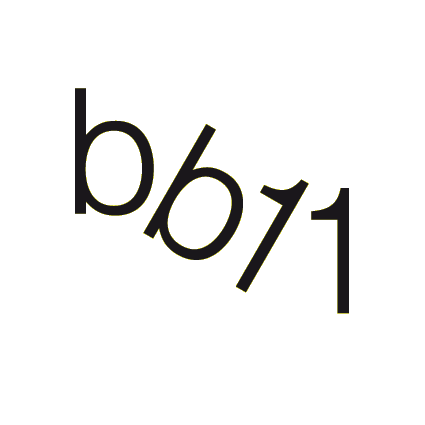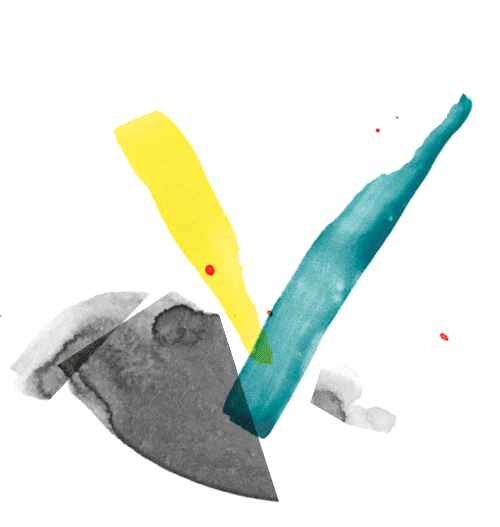

Sign up for our newsletters. You can change the settings or unsubscribe at any time.
Thank you for your subscription. We have sent you an e-mail with a confirmation link.


exp. 1
exp. 2
exp. 3

Sara Sejin Chang (Sara van der Heide)
Venue: KW Institute for Contemporary Art
Sara Sejin Chang (Sara van der Heide)
Born 1977 in Busan, KR – lives and works in Amsterdam, NL, and Brussels, BE
Four Months, Four Million Light Years (2020) is a shamanic healing journey addressing the colonial narratives behind interracial and international adoption, and specifically the historical relations between The Netherlands and Korea. The film takes the colonial print Een Schaman ofte Duyvel-Priester [Shaman or Devil’s Priest from the Tungus, 1692] by Nicolaes Witsen as the starting point for a spiritual journey through time. The seventeenth-century print is the first Western depiction of a shaman. It marks the beginning of a long history of racialized and infantilizing descriptions of Asian people by white Europeans. The caricature image was later used by missionaries to marginalize shamanism.
Four Months, Four Million Light Years time-travels from contemporary Dutch society and the participation of 3,418 Dutch soldiers in the deadly Korean War (1950–53) to early Dutch colonial descriptions of Asian people. The artist herself is an adoptee from Korea and grew up in The Netherlands. In The Netherlands alone around 40,000 people have been adopted from the Global South, often through child trafficking and with falsified documents. The four months of the title refer to the time it took to complete the paperwork for a Korean child in the lucrative interracial adoption industry that flourished after the Korean War, an industry that continues to live off the same colonial imagery from 300 years ago.
In the room, textile banners surround the video projection. Here, shamanic poems, songs and visions invoke the ancestors for support. The work is an homage to those who have been cut off from their mothers, fathers, family, ancestors, land, culture, and spirits.
Stefan Govaart
Weaving Solidarity
Renata Cervetto and Duygu Örs
Q&A
Expresiones de la locura: el arte de los enfermos mentales
Hans Prinzhorn
Monograph
El primer nueva corónica y buen gobierno
Felipe Guamán Poma de Ayala
Chronicle
Invitation to the Species: Cecilia Vicuña
Tamaas / Cecilia Vicuña
Podcast
Museo de la Solidaridad Salvador Allende (MSSA) in Berlin
A conversation between María Berríos and Melanie Roumiguière
Conversation
Fragments of the Artist’s Diary, Berlin 11.2019–1.2020
Virginia de Medeiros
Diary
By using this website you agree to the use of cookies in accordance with our data privacy policy.

Sara Sejin Chang (Sara van der Heide)
Venue: KW Institute for Contemporary Art
Sara Sejin Chang (Sara van der Heide)
Born 1977 in Busan, KR – lives and works in Amsterdam, NL, and Brussels, BE
Four Months, Four Million Light Years (2020) is a shamanic healing journey addressing the colonial narratives behind interracial and international adoption, and specifically the historical relations between The Netherlands and Korea. The film takes the colonial print Een Schaman ofte Duyvel-Priester [Shaman or Devil’s Priest from the Tungus, 1692] by Nicolaes Witsen as the starting point for a spiritual journey through time. The seventeenth-century print is the first Western depiction of a shaman. It marks the beginning of a long history of racialized and infantilizing descriptions of Asian people by white Europeans. The caricature image was later used by missionaries to marginalize shamanism.
Four Months, Four Million Light Years time-travels from contemporary Dutch society and the participation of 3,418 Dutch soldiers in the deadly Korean War (1950–53) to early Dutch colonial descriptions of Asian people. The artist herself is an adoptee from Korea and grew up in The Netherlands. In The Netherlands alone around 40,000 people have been adopted from the Global South, often through child trafficking and with falsified documents. The four months of the title refer to the time it took to complete the paperwork for a Korean child in the lucrative interracial adoption industry that flourished after the Korean War, an industry that continues to live off the same colonial imagery from 300 years ago.
In the room, textile banners surround the video projection. Here, shamanic poems, songs and visions invoke the ancestors for support. The work is an homage to those who have been cut off from their mothers, fathers, family, ancestors, land, culture, and spirits.
Stefan Govaart
IV: How Fear Can Dismantle a Body. Vis-a-Vis with two of four curators of the 11th Berlin Biennale
María Berríos, Lisette Lagnado
Conversation
Flávio de Carvalho: Fazenda Capuava
Archive of Lisette Lagnado
Photographs
Freiheit für Chile!
Anonymous
Photo album
Teatro da Vertigem
Monograph
BLM KOREA ARTS
#BlackLivesMatter #BLMKoreaArts
Young-jun Tak
Statement
Feminist Health Care Research Group
Web archive
By using this website you agree to the use of cookies in accordance with our data privacy policy.

Sara Sejin Chang (Sara van der Heide)
Venue: KW Institute for Contemporary Art
Sara Sejin Chang (Sara van der Heide)
Born 1977 in Busan, KR – lives and works in Amsterdam, NL, and Brussels, BE
Four Months, Four Million Light Years (2020) is a shamanic healing journey addressing the colonial narratives behind interracial and international adoption, and specifically the historical relations between The Netherlands and Korea. The film takes the colonial print Een Schaman ofte Duyvel-Priester [Shaman or Devil’s Priest from the Tungus, 1692] by Nicolaes Witsen as the starting point for a spiritual journey through time. The seventeenth-century print is the first Western depiction of a shaman. It marks the beginning of a long history of racialized and infantilizing descriptions of Asian people by white Europeans. The caricature image was later used by missionaries to marginalize shamanism.
Four Months, Four Million Light Years time-travels from contemporary Dutch society and the participation of 3,418 Dutch soldiers in the deadly Korean War (1950–53) to early Dutch colonial descriptions of Asian people. The artist herself is an adoptee from Korea and grew up in The Netherlands. In The Netherlands alone around 40,000 people have been adopted from the Global South, often through child trafficking and with falsified documents. The four months of the title refer to the time it took to complete the paperwork for a Korean child in the lucrative interracial adoption industry that flourished after the Korean War, an industry that continues to live off the same colonial imagery from 300 years ago.
In the room, textile banners surround the video projection. Here, shamanic poems, songs and visions invoke the ancestors for support. The work is an homage to those who have been cut off from their mothers, fathers, family, ancestors, land, culture, and spirits.
Stefan Govaart
Maternidades subversivas
María Llopis
Monograph
St Sara Kali George
Delaine Le Bas
Soundscape
A Moment of True Decolonization / Episode #6: Sinthujan Varatharajah. Constructing the Tamil Eelam State
The Funambulist / Sinthujan Varatharajah
Podcast
THE MOBILIZATION
Nicolás Cuello
Text
BLM KOREA ARTS
#BlackLivesMatter #BLMKoreaArts
Young-jun Tak
Statement
O Bailado do Deus Morto
Flávio de Carvalho
Play
By using this website you agree to the use of cookies in accordance with our data privacy policy.

Sara Sejin Chang (Sara van der Heide)
Venue: KW Institute for Contemporary Art
Sara Sejin Chang (Sara van der Heide)
Born 1977 in Busan, KR – lives and works in Amsterdam, NL, and Brussels, BE
Four Months, Four Million Light Years (2020) is a shamanic healing journey addressing the colonial narratives behind interracial and international adoption, and specifically the historical relations between The Netherlands and Korea. The film takes the colonial print Een Schaman ofte Duyvel-Priester [Shaman or Devil’s Priest from the Tungus, 1692] by Nicolaes Witsen as the starting point for a spiritual journey through time. The seventeenth-century print is the first Western depiction of a shaman. It marks the beginning of a long history of racialized and infantilizing descriptions of Asian people by white Europeans. The caricature image was later used by missionaries to marginalize shamanism.
Four Months, Four Million Light Years time-travels from contemporary Dutch society and the participation of 3,418 Dutch soldiers in the deadly Korean War (1950–53) to early Dutch colonial descriptions of Asian people. The artist herself is an adoptee from Korea and grew up in The Netherlands. In The Netherlands alone around 40,000 people have been adopted from the Global South, often through child trafficking and with falsified documents. The four months of the title refer to the time it took to complete the paperwork for a Korean child in the lucrative interracial adoption industry that flourished after the Korean War, an industry that continues to live off the same colonial imagery from 300 years ago.
In the room, textile banners surround the video projection. Here, shamanic poems, songs and visions invoke the ancestors for support. The work is an homage to those who have been cut off from their mothers, fathers, family, ancestors, land, culture, and spirits.
Stefan Govaart
O Bailado do Deus Morto
Flávio de Carvalho
Play
THE MOBILIZATION
Nicolás Cuello
Text
Struggle as Culture: The Museum of Solidarity, 1971–73
María Berríos
Essay
Feminist Health Care Research Group
Web archive
Memorial to the Sinti and Roma Victims of National Socialism
Dani Karavan
Memorial
Being in Crisis together – Einander in Krisen begegnen
Feminist Health Care Research Group (Inga Zimprich/Julia Bonn)
Online workshop
By using this website you agree to the use of cookies in accordance with our data privacy policy.
By using this website you agree to the use of cookies in accordance with our data privacy policy.




